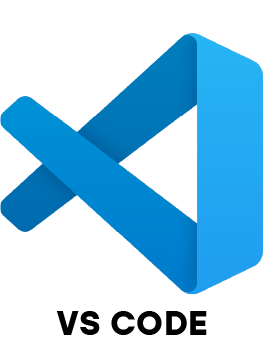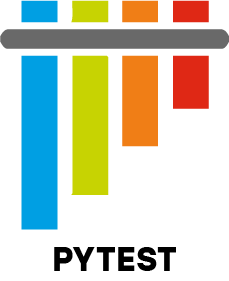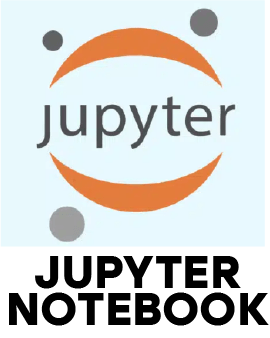We offer comprehensive training in Python, which will help you grasp fundamentals, advanced theoretical topics, such as scripting, sequence, and file operations in Python while providing practical experience with the functional applications as instruction is mixed with tasks and live projects. Both Python classes are online, licensed, and certified by Classroom & Instructor-Led Start your career with a high-paying job with a Python Certification Course in Trivandrum. Python is a popular open-source programming language with a wide range of automation, Big Data, Data Science, and Data Analytics applications. This is a flexible, potent, an interpreted language that focuses on objects. Python has the biggest amount of job prospects as a programming language. Researchers labeled Python "the next big thing" since many young and experienced developers choose it, and the programming languages of IT Space are very well paid for.
Additional Info
Intro of Python :
This high-level, interpreted language has an object-oriented structure and dynamic semantics. Contains high-level data structures designed to facilitate rapid application development, coupled with dynamic typing and dynamic binding, making it ideal for use as a scripting or glue language. Python's simple syntax leads to easy reading, which reduces the cost of maintaining programs. It is possible to modularize and reuse code in Python because modules and packages are supported. All major platforms can run Python without charge in source or binary form, which is freely distributable.
Its increased productivity is one of the reasons why Python is so beloved by programmers. The edit-test-debug cycle is extremely fast since it does not involve any compilation. It is easy to debug Python programs due to the fact that segmentation faults are never caused by bugs or bad input. Interpreters raise exceptions when they encounter errors. Stack traces are printed by the interpreter when the program does not catch the exception. Debugging at the source level includes inspecting local and global variables, evaluating arbitrary expressions, setting breakpoints, stepping through lines of code, etc. Debugging is done within Python itself, showcasing Python’s high level of introspection. Alternatively, it is often most effective to add a few print statements to the source code: this fast tester-debugger cycle enables quick debugging.
How To Become A Python Developer?
Careers as successful Python developers are very interesting, and there are many developers who are eager to pursue them. How can you become a Python Developer and how can you develop a career in this field? In order to aid you in doing so, here are a few tips :
- Make your own GitHub repository that functions more like a resume
- Coding standards that are easy to understand, properly documented, and easily readable
- Get to know the technology by reading good books and studying peer code that is well developed
- Become familiar with Python libraries to enhance your technology skillset
- Python and AI are highly correlated, so I have a good understanding of them together
- Consider taking up Python freelancing projects to help build experience
- Participate in the open source community through platforms like GitHub
- Your resume and profile should be updated on all important platforms
- Take advantage of the course to help you learn coding
- Develop a deep understanding of Python frameworks, ORM libraries, programming languages, and version control systems
Python Developer Job Description – Role, Responsibilities, And Skills :
Python Developer Responsibilities :
- Writing reusable, testable, efficient, and scalable code
- Analyzing, understanding, and implementing - Business requirements, feature requests, and converting into software components
- A user-oriented approach to data storage and integration of various applications
- Enhancing performance and responsiveness of backend components, server-side logic, learning models, and highly responsive web applications
- The design and implementation of systems providing high availability, low latency, security, and data protection
- Optimization and automation of application performance
- Tools like Behave, Pytest, PyUnit, etc. are used to test and debug software applications.
- Software systems that are currently in use need to be improved
- The development of digital tools for tracking online traffic
- Utilization of Python library tools like Pandas, NumPy, etc.
- Designing predictive models based on AI and machine learning
- Being up-to-date with the latest technologies and trends
- Based on results, fine-tune and develop artificial intelligence/machine learning algorithms
Python Developer Skills Set :
A Python developer must have these skills in order to be effective :
Technical Skills :
Having good proficiency in,
- Frameworks in Python such as Django, Flask, etc.
- Platforms and RESTful APIs for web development
- The fundamentals of Python programming
- Deploying, packaging, and releasing code
- Knowledge of databases
- Controls, conditional statements, and circles
- Maps between objects and relations
- Server-side languages like Mako etc.
- Tools such as Git, SVN, etc. for code versioning
- Fundamental understanding of,
- Use of front-end technologies likeJS, CSS3, and HTML5
- Input, output, version control, deep learning, artificial intelligence
- Statisticians, data analysts, and visualization of data
- A scalable application should follow these principles
- Modeling for creating predictions
- Library programs such as Tensorflow and Scikit-Learn are useful
- Architecture based on multiple processes
- Data sources and databases can be integrated into one system
- Tools such as Selenium can be tested and debugged with robust capabilities.
- An understanding of Object Relational Mappers based on basic knowledge
- A unified system that integrates databases and multiple data sources
- Tools like Selenium provide robust support for testing and debugging.
Soft Skills:
- Communication skills – ability to communicate effectively among users, developers, testers and designers
- Analytical skills - Understanding of algorithms and logic involved in coding
- Skills in writing efficient, readable, and comprehensive code
- Thinking, analyzing, and troubleshooting skills related to data
- Project management and problem solving skills are essential
- Understanding risks and solving complex technical problems before they happen
- Possibility of understanding the organization's data situation on a large scale
- Collaborative and team-oriented practices
- Project management, task organization, and time management
- Creative, original, and out-of-the-box thinking abilities
Benefits of Learning Python :
A common programming language is Python, and no one can deny that. Python has been the most popular coding language for the past few years, making career progression opportunities for Python developers excellent. Numerous large companies use Python, including Pinterest, Instagram, and Yahoo!These include Nokia and Google. Data Scientists prefer Python over all other programming languages. As discussed, Python provides many benefits.
1. Easy to Learn & Understand :
However, Python is an easy-to-learn and understand high-level language that allows you to perform complex tasks. Both beginners and experienced programmers can use it since it has an intuitive syntax. Python can seem intimidating at first if you are a complete beginner. Developing teams with members who are inexperienced use this language to produce better results.
2. Python is Versatile :
It is used for product development, rapid application development, testing, automation, data mining, artificial intelligence, data science, gaming, data analysis, and more. As a primary language for many applications, Python is becoming increasingly popular
3. Python’s Popularity & High Salary :
A popular programming language, Python has grown in popularity throughout the years. Python developers are in high demand as a result of the growing popularity. You can find lucrative career opportunities if you learn Python. The Python community is among the highest-paid developers in the market, particularly in fields like data science, machine learning, and web development.
4. Open-Source Language :
There is a massive Python support base since Python is an open-source programming language.
5. Receives Regular Updates :
In addition to receiving updates and enhancements to enhance its functionality, Python undergoes regular updates and enhancements on a regular basis.
6. Low Program Management :
A lot of beginners find Python easy to learn and use because of its easy readability and easy syntax. In addition, it is very popular, leading to a rich network of resources on the Internet. As a result, the language develops more rapidly and there is less program management required.
7. Extensive Support Libraries :
Various areas of Python's library are covered. Using libraries of pre-scripted commonly used tasks reduces the length of code and the time it takes to write.
8. Increased Productivity :
Python does not require compilation, so it is incredibly fast when it comes to test-debugging. Segmentation faults are never caused by bad input. Instead, they occur by raising exceptions.
9. Third-Party Modules :
With a variety of third-party modules, the Python Package Index can interact with most languages and platforms.
10. Add Value to your Resume :
Being knowledgeable about Python is one thing, but having certification in Python is another. Your resume will be enhanced and you will have an advantage over other candidates if you earn a Python certification.
11. Get Better Profiles/Switch Career :
It will be easier to make the switch if you have a Python certification since it will demonstrate that you are capable of tackling numerous projects.
Python Applications :
With Python, you can develop applications across multiple operating systems (Macintosh, Linux, Windows). The following are some of the areas where Python excels in application development.
- Back-end or server-side web
- Mobile app development
- Desktop app/software development
- Big Data processing
- Mathematical computations
- System script writing
Who should take up the Python certification?
Certification courses in Python programming are available to everyone. Bachelor's degrees are the minimum requirement for taking Python courses. In contrast, Python can be studied by postgraduate students at any level and from any field. After completing the basic Python certification, students can enroll in advanced Python classes.
Eligibility & Prerequisites to Learn Python :
A Python certification or course is not subject to any fixed eligibility requirements. The concepts and advanced levels will be easier to learn for those with an IT background. It will also be helpful if you have experience working on related projects for two to three years. An aspirant must be familiar with at least one other programming language before learning Python. Python will be learned in less time if the aspirant uses it.








































